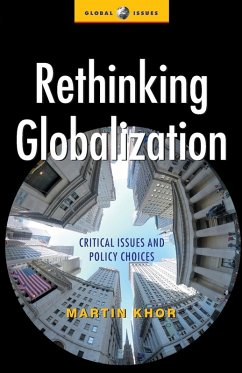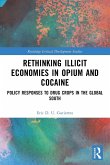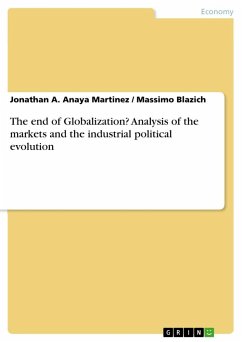Martin Khor's practical proposals offer action agendas to Third World governments as they are faced with globalization. Khor explains the economic globalization process, showing how it is failing to either increase economic growth or decrease poverty. A critique of Western governments for their domination of the international policy process ensues, where Khor exposes the flaws in the "one size fits all" policy prescriptions of the World Bank, IMF, and WTO. Arguing that Third World countries need room to maneuver, this book proposes innovative and realistic policies.
In this optimistic book Martin Khor, director of the influential Third World Network, sets out concrete proposals for what Third World governments can do to shape globalization to their particular circumstances. His book explains what economic globalization means in trade, finance and investment, and shows how globalization is not increasing economic growth in most countries, or reducing inequality and poverty. In the process, Khor refutes the 'one size fits all' policy prescriptions foisted by the World Bank, IMF and WTO on developing countries, arguing that these countries must themselves be allowed to decide when and how to open their economies to the global system. At stake is nothing less than the whole prospect of rapid, just and diversified development in the South, on which prosperity, the environment and an end to mass poverty depend.
In this optimistic book Martin Khor, director of the influential Third World Network, sets out concrete proposals for what Third World governments can do to shape globalization to their particular circumstances. His book explains what economic globalization means in trade, finance and investment, and shows how globalization is not increasing economic growth in most countries, or reducing inequality and poverty. In the process, Khor refutes the 'one size fits all' policy prescriptions foisted by the World Bank, IMF and WTO on developing countries, arguing that these countries must themselves be allowed to decide when and how to open their economies to the global system. At stake is nothing less than the whole prospect of rapid, just and diversified development in the South, on which prosperity, the environment and an end to mass poverty depend.








